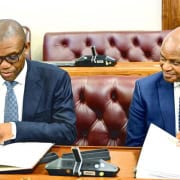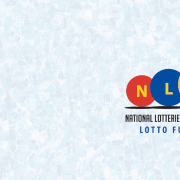|
Getting your Trinity Audio player ready...
|
By Kwazi Dlamini
The Special Investigating Unit (SIU) is continuing to probe allegations of corruption against former board members of the National Lotteries Commission (NLC) and other senior officials. At the beginning of March the SIU submitted to Parliament an explosive status report alleging that NLC officials funnelled millions of rands meant to develop old age homes, youth empowerment facilities and drug rehabilitation centres, into purchasing luxury cars and homes.
The wide-ranging investigation emanated from a proclamation by President Cyril Ramaphosa to look at the NLC’s activities from 2014 to 2020. It was to focus on maladministration in NLC affairs relating to investment of funds of the National Lottery Distribution Trust Fund and its allocation of money to beneficiaries who should have not benefited.
Corruption Watch, as far back as October 2020, expressed concern at the allegations around the NLC. Part of combating corruption, besides prevention, said the organisation, is ensuring ethical, qualified leadership and oversight. It urged the minister of trade and industry, Ebrahim Patel, and the parliamentary Portfolio Committee on Trade, Industry and competition to exercise care and caution when appointing new board members.
Robbing the poor to enrich themselves
Through its investigations, the SIU discovered corruption networks whose operations included using non-profit organisations (NPOs) and offices of legal practitioners. NLC officials worked with directors of NPOs, service providers, and individuals as part of their modus operandi to defraud the commission. The SIU found high-scale collusion between NLC officials, some board members, and NPOs. They further noted the abuse of NPOs and companies through hijacking by NLC officials.
One identified NPO was hijacked and R23-million was paid to it for the apparent purpose of building an old age home in Mpumalanga. However, the project was not completed because the funds were redirected to individuals connected to the NLC. The NPO transferred R5-million of the R23-million to an attorney of the group of companies belonging to a former NLC board member.
In 2018, another board member received over R5-million into his personal bond account in a space of three months from various NLC-funded NPOs.
These are some of the disturbing findings made by the SIU investigations so far, illustrating the nefarious operations of NLC officials and how they unduly benefited and laundered money through the commission. They are even more shameful in light of research the NLC had itself commissioned as far back as 2010, which showed that South Africa’s lottery was supported mainly by the poor and low income earners, with 73% of players earning less than R5 000 a month – and of those, 33% earned R1 000 a month or less.
Litigation proceedings under way
The SIU investigated approximately 50 allegations of irregular allocation of funds by the NLC to unqualified beneficiaries. Reporting to the Portfolio Committee on Trade, Industry and Competition, the organisation said that stage one of the investigation involving non-executive board members, senior NLC officials and 12 projects is still ongoing, and the report is expected to be submitted to President Cyril Ramaphosa in April.
The SIU has started with civil litigation proceedings to preserve illegally gained properties and set aside grants awarded to various NPOs. They have also made 10 criminal referrals against NLC officials, NPOs and companies – these will be finalised and sent to the National Prosecuting Authority.
Portfolio committee chairperson Judy Hermans urged the SIU and other law enforcement agencies to ensure that those involved face the full might of the law. While commending the SIU’s progress thus far, the committee noted with concern the extent of corruption and maladministration uncovered at the NLC to date, and resolved to exercise its oversight role to address and resolve the situation.
Because of the purported corruption and maladministration, Ebrahim Patel recently called for the dissolution of the NLC board, saying it had failed to ensure proper administration and good governance.
The NLC, meanwhile, said in a statement that it “reiterates its continuous cooperation with the investigation since its inception in 2020”.
Furthermore, the NLC is confident of its internal processes to ensure fair and equitable funding, and said it remains committed to applying the principles of openness and transparency in the exercise of its mandate and functions.








